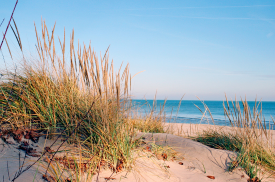
Freshwater Future Weekly: November 14, 2025
Blog: Pellston One Step Closer to Safe Drinking Water
For over five years, residents of Pellston, Michigan, have endured chemical contamination in their well water from the local airport. The community was awarded a significant grant from the State that will cover virtually the entire cost to construct a community water system. In this blog post, 2025 Yale Environmental Fellow, Katelyn Connelly describes the ongoing PFAS crisis in this small town and implications for other rural small towns with contaminated drinking water sources.

Webinar: Keeping Your Nonprofit Compliant and Safe Into the Future
All U.S. community-based organizations are invited to our free Tuesday, December 9th webinar to review essential tasks that will keep your non-profit compliant with state and federal laws. Regardless of your experience level, this is a great opportunity to ask questions, learn or review requirements for recordkeeping, IRS filings, lobbying limits, and more! Register today and join us on December 9th at 12pm ET.
Mindfulness: Continue the Practice Through Year’s End
Join us for our final Mindfulness and Meditation Session of 2025. Mindfulness expert Jonathan Relucio will guide us through 45-minute sessions on Wednesday, December 17 at 11:30am ET. Join us to find calm in the middle of the holiday season.
Learning these simple techniques can easily be used in your daily life to help you recharge, refocus, and reduce stress. This FREE event is open to everyone—community leaders, family, friends, co-workers, and volunteers–so please share this with them.
Win! Minnesota Mine Must Limit Sulfate Pollution to Protect Wild Rice
Freshwater Future is celebrating with our partner, WaterLegacy, that Minnesota state regulators issued strong, science-based permits to a taconite mine that will protect local wild rice and bodies of water from sulfate pollution. After 15 years to get enforcement of the sulfate standard, Paula Maccabee of WaterLegacy called this moment a “milestone.” This marks the first time in over 50 years – since the wastewater discharge limit was set – that this standard has been enforced. This is a wonderful first step to ensure the protection of wild rice, which applies to approximately 2,400 state waters, and to ensure that the polluters are the ones paying to clean wastewater.

Photo Caption: Wild Rice in Bloomington, MN, Theresa Garrison/USFWS